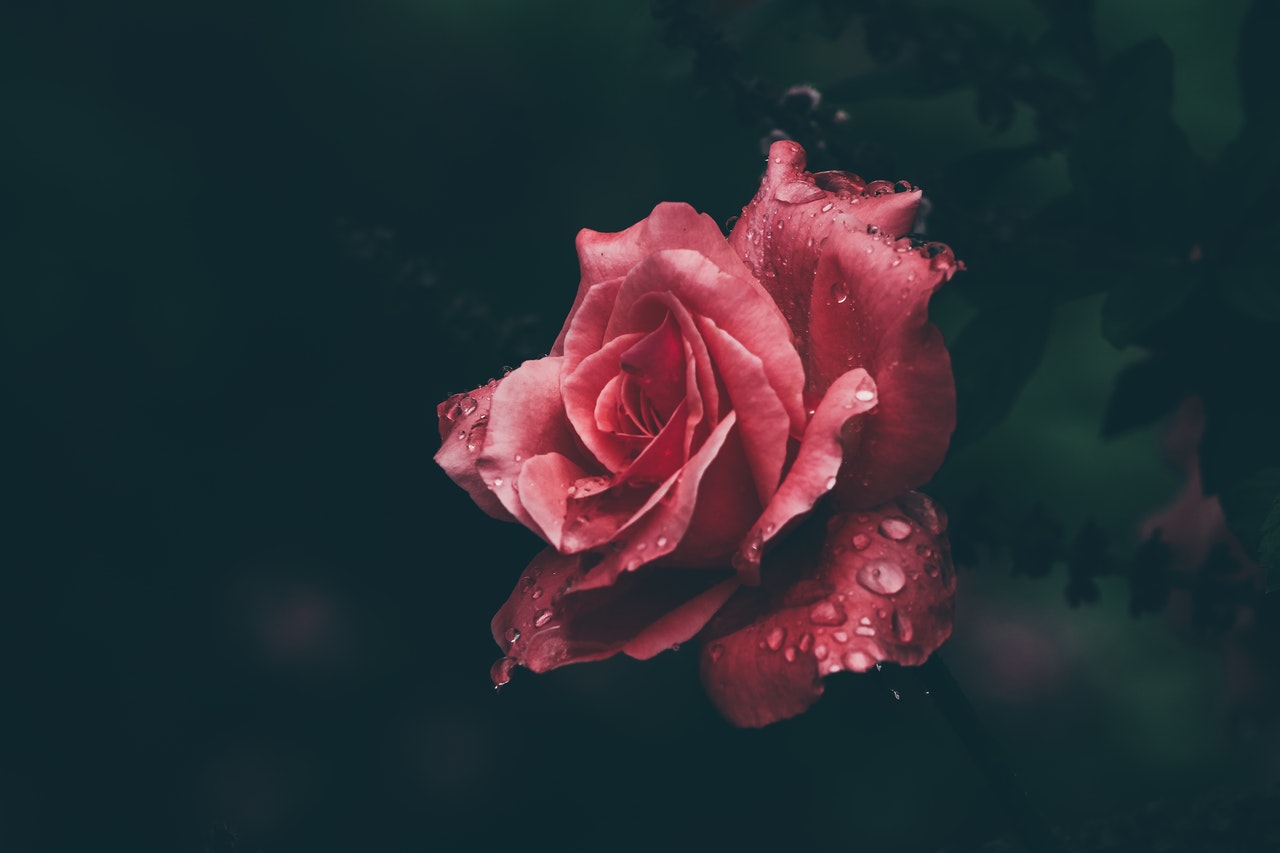You’re reading part six of a six-part interview. Click on the links to navigate:
- On Five Star Billionaire and personal reinvention
- On old and new China
- On censorship and (not) being a spokesperson
- On living in and writing about Shanghai
- On the art of writing
- On literary culture in Singapore
Click to view the interview on a single page.
See Aw’s schedule of public appearances in Singapore in April.
From your experience teaching here, do you think there are systemic problems that discourage literary talent?
Yeah, my sister was in school in Singapore for years, so I know the school system really well, and I’ve had a lot of Singaporean friends over the years. I think the Singaporean schooling system is not one that’s generally encouraging of creativity. But I think writing is a particular problem. Because the whole thing about writing requires you to question stuff in general. Not necessarily political things, but from a personal point of view. It needs you to question stuff that’s going on inside yourself. Very basic things, like family. That’s not something the Singaporean educational system encourages.
I can say this quite confidently because when I was growing up that was basically the system I grew up in. It was really hard to ask even the most basic questions about yourself and your family, like who am I, am I living in conditions that are happy? Those are not questions that people asked themselves.
Did you find that frustrating or was it only something that occurred to you when you left home?
I think personally I always found it frustrating. I don’t know why, but I’ve always had a sense of being a bit of an outsider. Maybe it’s because I was born in Taiwan, even though I moved back to Malaysia when I was two. Every time I have to fill in a form, my place of birth is Taiwan. When I go through immigration, they say, are you Taiwanese? That makes you feel different. So I have a slightly different perspective.
Perhaps the sort of students who are drawn to the arts are naturally more inquisitive?
Yes, that’s true. The students in my class have the potential but, for whatever reason, I feel they’re holding back. What I’m trying to do is get them to stop writing about zombies and dragons and start writing more about themselves. It’s easier to write about something that’s not yourself, that you don’t have to put yourself into.
These kids have very vivid and active imaginations. I’d just like that alertness to be pointed towards stuff that really matters to them. Because you can argue until you’re blue in the face, but you’re never going to convince me that dragons are the key to your existence, your being. The questioning doesn’t have to be in a provocative way, but it needs to be explored, in a way that’s meaningful. That’s personal.
Writing, particularly at the start of your career, has to involve things that are close to you and important to you. That’s what makes powerful literature. If you write about stuff that you don’t really care about, it’s never going to lead somewhere.
Though your own first novel wasn’t the obvious autobiographical one.
All my novels and particularly this one, draw a lot from my personal experiences. In the first one I wanted to get away from the very personal, because I just didn’t think my life was that interesting! I thought it was quite self-regarding to talk about myself.
But what I did do is talk about the experience of people who share my family background. So it really concerns a lot of stories that I heard when I was really young, about people in my grandfather’s generation; people who never had a voice. This was a part of Malaysia that people are never going to see, if it’s not captured in literature. So for me it was really important that these people had a voice and a presence in literature. From that point of view, it was quite a personal novel.
Are there common themes you think run through your work?
I haven’t thought about my first novel in a very long time. But thinking about it now, I’m interested in the way Asian people reinvent themselves. When you look at these tycoons, like the really rich ones, like Li Ka-Shing. Where does he come from? Where did he start from? There’s always a lot of myth making involved. Often, Asian people don’t celebrate their past in the way that Western people do. In the West, you’re exposed to a surfeit of information about where people are from.
I was always struck by how here, in South-East Asia, you grow up with all these famous figures. Like Mahathir, the former prime minister of Malaysia: you really don’t know who his father was. There is no way someone could be president of America without us knowing every single detail. And I’m really struck by how a lot of Asian cultures go in for this rewriting of their own narratives.
Whereas in places like Britain it’s important for people to talk about where they’re from. Asia’s the polar opposite.
And in China it’s super exaggerated. They really don’t care about what you were doing two years ago, let alone what your family did 100 years ago. I find that contrast interesting. I guess that’s what my books have in common with each other: they’re about how we deal with where we’re from.
So you’re not sitting down to tackle a theme. You just want to tell a story.
Every time I sit down to write a new novel, my only thought is to do something I haven’t done before. So I guess it’s interesting that there are some similarities.
Are you surprised that somewhere like Singapore hasn’t produced more literature about these very topics?
I talk about this a lot with my colleagues here and with other Singaporean writers. Singapore has everything it takes to produce a novel like that, because it has such high levels of education and literacy, and high disposable income. There should be more people reading and more people buying books and becoming writers, but they’re relatively low numbers.
But when you take the MRT, hardly anyone’s reading, they’re all playing games.
I noticed that. Even in London, they’ll be all reading. It always depresses me when I hear people in Singapore and Malaysia say “your books are so expensive.” It’s only $20, that’s not so expensive. People will happily spend $100 on dinner.
When I speak to old friends from school—and we’re all in good jobs now, we had a decent education—they say stuff like, “I haven’t read your second novel because Ronald still has it, and after Ronald he has to give it to…” It’s just 35 ringgit for a paperback! It’s just unbelievable. They feel no shame in saying to writers, “I haven’t bought your book because I’m waiting for the paperback because it’s less expensive.” Such a waste of money, someone told me last time.
And yet there’s such rich, recent, turbulent history to draw on. HBO Asia are currently shooting Serangoon Road, set amidst the intrigue of 1960s Singapore. So there are stories to tell.
What I’m finding with a lot of my students, even the Singaporean-Malay students, is that they have very little idea of what Malaysia is. Part of the Singapore narrative, at the governmental level, has involved erasing that part of the story. 1965 [the year in which the Malaysian parliament voted unanimously to expel Singapore from the Federation of Malaysia and Singapore became independent] was a very traumatic event for both sides, but particularly for Singapore.
But you can’t appreciate how significant the achievements of Singapore are, if they’re not measured against pre-1965 Malaysia. To appreciate fully what Singapore is and has become you have to see it as having, really recently, been part of Malaysia.
Are your students aware of the gaps in their knowledge?
When I was growing up, virtually every Singaporean I knew had family in Malaysia. And every other family in Malaysia had at least one relative working in Singapore. But now I have one Singaporean-Malay student who’s never even been to Malaysia. They don’t have that link. They’re not that interested. To them, Malaysia’s this slightly terrifying place, like Indonesia, where you can get robbed. You can only appreciate just how significant that sort of thinking is when you consider that Singapore was part of that country so recently.
One of my students put it quite succinctly. He doesn’t know. He knows that he doesn’t know. When he thinks about his cultural heritage it’s like an alien culture; he doesn’t feel a link to mainland China, there isn’t a link to Malaysia. So you don’t have the same sense of time and perspective.
And yet you still like it here in Singapore.
My liberal friends in London will say “Oh, there’s no press freedom in Singapore.” And I think, “OK, well I grew up with that, and there’s always ways you can work around it.”
But the reason I can’t be down on Singapore in a blanket way is that anyone who doesn’t like Singapore for those reasons—it’s boring or whatever—they basically have educated, middle class tastes; they need a certain kind of environment to get their kicks. But if you’re a working class Chinese from Malaysia, Singapore is nothing but 100% good. My uncles and aunts are small-town working Chinese. They think Singapore is absolutely wonderful. When you see it through their eyes, it’s a land of opportunity, of meritocracy, no corruption. So the Singapore social experiment is a very valid one. But from a more profound point of view, from a writer’s point of view, I’m concerned that if the emotional timeline stops at ’65, then it’s going to take writers a lot longer to find their place in literature.
I think Singapore is very creative, with great film-makers and visual artists. Literature is the one thing that’s lagging behind. The Great Singapore Novel isn’t going to happen for a long time, because to have any novel, let alone a great one, you need to be able to draw upon reserves of experience. If you’re going to rely on that post-’65 narrative, then Singapore is a young country. Somewhere like Britain has had hundreds of years.
Could it not come from the diaspora?
Maybe. I’ve heard that Boey Kim Cheng—who’s going to be at NTU next semester—has written a big novel. So that might be very good. He’s lived in Australia for many years; so that could work. But even to get a diaspora takes time. With a population of 4 or 5 million it’s not going to happen quickly. In the meantime, because Singapore is so success and results-driven, they want it now.





